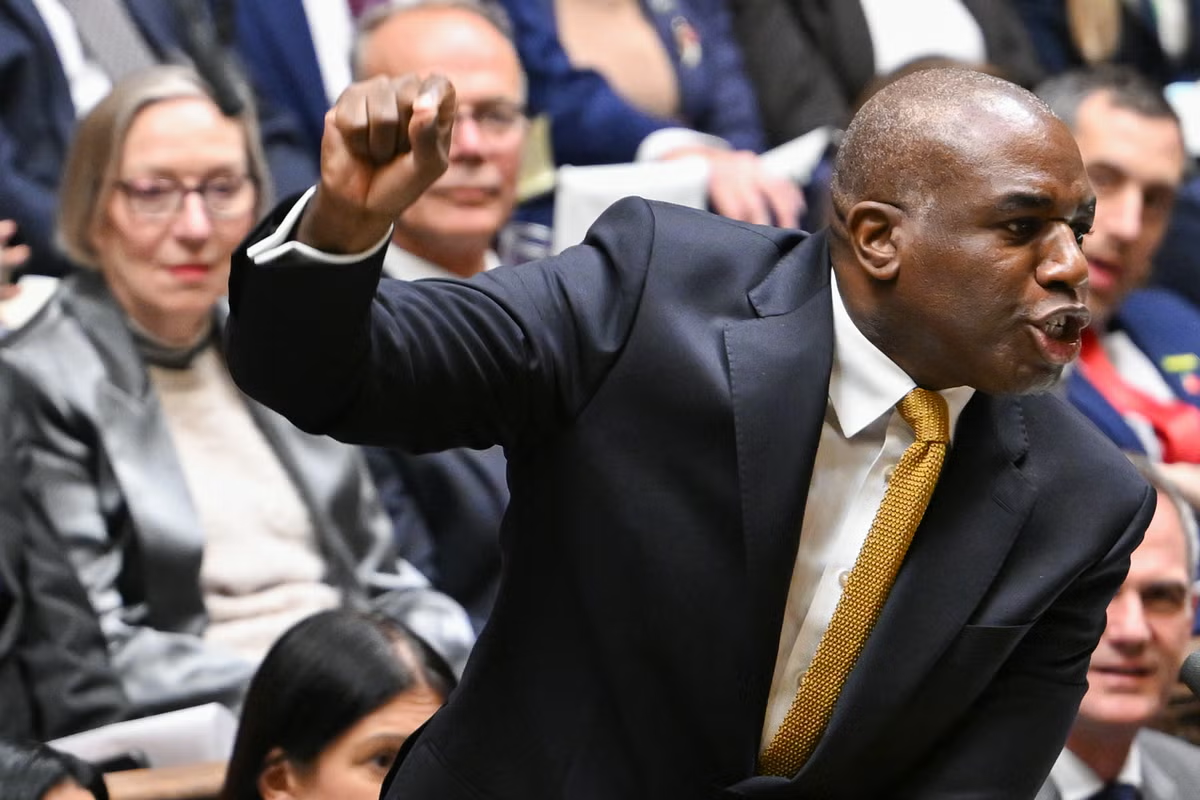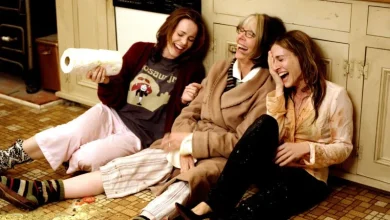Performative poppy wearing has turned toxic – should we be wearing white poppies instead?

Stay ahead of the curve with our weekly guide to the latest trends, fashion, relationships and more
Stay ahead of the curve with our weekly guide to the latest trends, fashion, relationships and more
Stay ahead of the curve with our weekly guide to the latest trends, fashion, relationships and more
Every year they get more unhinged. The rabid “where’s your poppy?” brigade, that is, whose public shaming of anyone foolish/thoughtless/bold enough to appear on national television in November without sporting a scarlet talisman pinned proudly to their chest is swift and merciless. Celebs beware! For high-profile figures, turning up to any kind of event without one is tantamount to asking for a pile-on. After all, social media’s stranglehold over the internet means you could be “outed” anytime, anywhere, by anyone with a smartphone.
Three people have already fallen foul of the baying mob this week. First up was Loose Women presenter Charlene White, forced to defend herself after appearing on the chat show poppy-less. Then it was the turn of Good Morning Britain’s Kevin Maguire to face the proverbial firing squad. Finally, Deputy Prime Minister David Lammy made up this unholy triumvirate when, standing in for Labour leader Keir Starmer at PMQs on Wednesday, he was spotted with a shockingly empty lapel. Panic ensued on the benches behind him; a badge was hurriedly passed forward from MP Calvin Bailey, a former RAF Officer, and fixed to Lammy’s jacket by women and equalities minister Bridget Phillipson.
What made the whole escapade even more farcical was that the poppy in question was a special regimental one – which made Lammy look like he was “accidentally pretending to have served in the armed forces,” as one sketch writer put it – and that it got pinned to the right, which is to say the wrong, side of his jacket. The poppy is meant to be worn on the left, the same as military medals.
To be clear, these people are not even poppy defectors. Lammy blamed his oversight on the fact he’d worn a new suit to impress his godmother. Maguire has in previous years shared his decision to simply not wear one until the days leading up to Remembrance Sunday, which this year falls on 9 November.
And, in an emotional Instagram post earlier this week, White explained that she does, in fact, wear a poppy off-air and donates to the Royal British Legion in honour of her late father who served in the RAF. On-air, she takes broadcasting impartiality rules seriously – and they state that presenters are not allowed to visually show support for charities while on screen. “You may not agree with me, and I genuinely don’t expect everyone to, but disagreement does not legitimise the abuse,” she said. “It is not what my dad, my uncle, my close friends and millions of others served for.”
While Lammy and Maguire have both copped their share of flack for this supposed crime, White, as a Black woman, has been subject to what she’s described as a campaign of “hate, vitriol and racism” that dates all the way back to 2013. The Royal British Legion has stepped in to support White in the past, writing a letter that stated: “Those who bullied you should be ashamed of their behaviour”.
It’s just one of countless examples of how performative poppy wearing has become inherently toxic in some spheres, straying so far from the original appeal’s aims of honouring the fallen and supporting today’s Armed Forces veterans that it has crossed into absurdism.
open image in gallery
Presenter Charlene White does not wear a poppy on-air because of broadcasting impartiality rules (ITV)
There are very few, if any, equivalent situations in which the failure to put on specific paraphernalia would attract instant ire. If someone isn’t sporting rainbow garb during Pride month, it isn’t automatically assumed that they’re a homophobe. If someone shows up to a peace march for Palestine without a keffiyeh, people don’t jump to the conclusion that they’re a Netanyahu supporter. Why does the poppy come with its own set of bonkers rules that are so completely divorced from reality?
The fact that so much bile and abuse has been hurled at people purely for the absence of a £2 paper flower (which has a tendency to fall off a jacket at the slightest provocation anyway) has transformed it from a well-meaning show of support into another piece of weaponised propaganda in the never-ending culture wars.
The whole endeavour is so politically charged, in fact, that some are even starting to think twice about donning one because of the message it might send. “I won’t wear one now out of principle,” as one friend told me. “All the mad backlash that people get for not having a poppy… The whole thing is giving racist.” Another acquaintance put it thus: “I’ve got nothing against the charity side of it, but at this point the Venn diagram of people who’d kick off if you’re not wearing a poppy and people who’d happily hang an England flag on a lamppost is basically a circle.”
You may not agree with me, and I genuinely don’t expect everyone to, but disagreement does not legitimise the abuse
Charlene White
And indeed, just as the St George’s cross has become sadly synonymous with racism and anti-immigration sentiment thanks to the “Operation Raise the Colour” campaign across the UK, endorsed by Tommy Robinson and co-opted by far-right groups, so the poppy feels like it might be on the cusp of its own image problem. The fact that White, the daughter of a veteran herself, has been the victim of racist abuse for her failure to wear a poppy, is irrefutable proof of just how much the emblem’s meaning has been warped by bad actors.
There is an alternative to simply not wearing a poppy, and that is to wear a white poppy instead, as Sir Mark Rylance did earlier this week. The Wolf Hall actor was seen sporting the alternative remembrance flower, which is sold by the Peace Pledge Union (PPU), with profits going towards promoting peaceful alternatives to war, campaigning against militarism and peace education work. It’s far from a new initiative; white poppies were first produced in 1933 by the Co-operative Women’s Guild, made up largely of women who had lost husbands, fathers, sons, brothers and friends in World War One. They were worried by the growing militarisation of Remembrance events and what they saw as a detachment between the red poppy and the need to work for peace.
open image in gallery
Actor Mark Rylance is backing the white ‘peace’ poppy movement (Peace Pledge Union)
The white poppy represents three things: remembrance for all victims of war, both military and civilian; a challenge to any attempts to glamourise or celebrate war; and a commitment to peace. The late, great poet and writer Benjamin Zephaniah was a fan, saying: “I love wearing my white poppy… We have to remember all victims of war, not just the select few. And we have to work towards a world where there is no war.” This year, Sir Mark is publicly taking up that mantle and speaking at the National Alternative Remembrance Ceremony, an annual event that commemorates all victims of war and highlights the importance of actively working for peace.
“Unfortunately, wars are fought with and against civilians today and I consider it an offense not to remember their suffering,” he has said of his decision to back the white poppy campaign, having previously argued that the white poppy isn’t “in any way an opposition to the red poppy worn in remembrance of military casualties.”
Wars are fought with and against civilians today and I consider it an offense not to remember their suffering
Mark Rylance
Of course, all this has already riled up certain sections of the media. One paper has called it the “controversial” white poppy movement; another has branded it “woke”; a third has labelled it “dangerous”. All this, for a call to remember civilians, not just Armed Forces, killed or affected by war, alongside a rallying cry for peace.
As Geoff Tibbs, remembrance project manager at the PPU, puts it: “The white poppy is sometimes accused, wrongly, of being disrespectful. In fact, by wearing a white poppy we respect all victims of war – by remembering their suffering and making an active commitment to peace. A clearsighted call for peace is desperately needed now, at a time of genocide, global instability and soaring military spending.”
By all means, wear whichever poppy you choose. But lest we forget, many of our fallen soldiers know the true horrors of war and laid down their lives in the fight against fascism. They fought for freedom of speech. An alternative badge isn’t an insult to their memory – but spewing vile abuse at others in the name of patriotism just might be.





